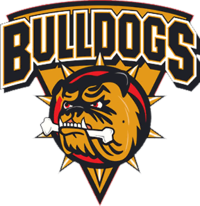Codes of Conduct
Sport is an important part of life. All those involved with sport at every level, whether as a player, match official, coach, owner or administrator, have a responsibility, above and beyond compliance with the law, to act according to the highest standards of integrity, and to ensure that the reputation of the sport is, and remains, high.
What we expect from Our Players
Every player is responsible for their own behaviour. We expect our players to behave appropriately both on and off the ice and follow the Players Code of Conduct as follows:
Participate because they want to and for the fun of it, not because their parents/guardians or coach wants them to
Co-operate with and respect the coaches, managers, officials and teammates and opponents
Play by the rules of the game
Accept success and failure, victory and defeat equally
Attend regular training sessions and notify the team manager or coach in good time if they cannot attend a session
Report to team officials upon arrival of each training session and game; arriving at the arena no less than 1 hour before the start of any match
Be properly dressed, both on and off the ice when representing the Club
Store all hockey equipment in personal kit bags in the changing rooms provided and dispose of all rubbish appropriately
Always try to control their temper
Not use inappropriate language
Be a team player and encourage others to work together
Actively aim to pass the puck to team members when appropriate at all times
Set a positive example for others, particularly younger players and supporters
Let their coach or captain ask any necessary questions to officials
Thank their coach, the officials and their parents/supporters for their time and support.
Respect the facilities and the property of others
Behave appropriately in the changing rooms and arena (both home and away).
Not criticise or put down other players at any time
Actively avoid engaging in behaviour, either physical or verbal, that is likely to be upsetting to other players, managers or coaches.
Resist any temptation to take banned substances or use banned techniques.
Ice Hockey is a fast and often aggressive sport but there is a big difference between playing and training competitively, and the intimidation and abuse of others. Bradford Ice Hockey Club has a policy of ZERO TOLERANCE towards verbal and physical abuse. Any individual found to be involved in the verbal and physical abuse of another club member may, at the discretion of the Committee, be suspended or expelled from the Club.
What we expect from parents/carers
We ask and expect parents/carers to observe the Parents Code of Conduct at all times, including the following:
Avoid forcing a child to participate in this sport and remember that a child is playing for their own enjoyment
Encourage the children to play by the rules and to resolve conflict without resorting to violence
Teach the children that although it’s fun to win, trying hard and doing ones best is really the “name of the game”
Never ridicule or yell at children for making a mistake or losing a game
Always offer constructive advice and assurance that continued effort would make for improved performance
Have realistic expectations of a child’s performance
Accept that in competitive games a child may not always get the same amount of ice time as other players
Support a child in what he or she feels is important and praise the achievements that make a child feel positive
Let the coaches and referees do their jobs, and respect their actions and decisions
Be a supportive and fair spectator when attending games
Discuss playing fair and encourage children to understand that violence is as unacceptable in professional sport as it is in their own league
Remember that children learn best by example; applaud good play by members of both teams
Ensure that parents/carers are present and available at all times for their respective child during training sessions, tournaments and matches; the Club is not responsible for the supervision of children off-ice and outside the changing rooms.
Explain Code of Conduct for Players and ensure children understands what is expected of them
Code of Conduct – General
Community
Sport, at all levels, is a vital part of a community. The Club will take into account community feeling when making decisions.
Equality
The Club is opposed to discrimination of any form and will promote measures to prevent it, in whatever form, from being expressed.
Participants
The Club recognises the sense of ownership felt by those who participate at all levels of sport. This includes those who play, those who coach or help in any way, and those who officiate, as well as administrators and supporters. The Club is committed to appropriate consultation with those who so participate.
Young People
The Club acknowledges the extent that sport can influence young people and pledges to set a positive example.
Propriety
The Club acknowledges that public confidence demands the highest standards of financial and administrative behaviour and as such will not tolerate corruption or improper practices.
Trust and Respect
The Club will uphold a relationship of trust and respect between all involved in sport, whether they are individuals or other clubs and organisations.
Violence
The Club rejects the use of violence of any nature by anyone.
Fairness
The Club is committed to fairness in its dealings with all those involved in the provision of sporting activities.
Integrity and Fair Play
The Club is committed to the principle of playing to win consistent with Fair Play.
